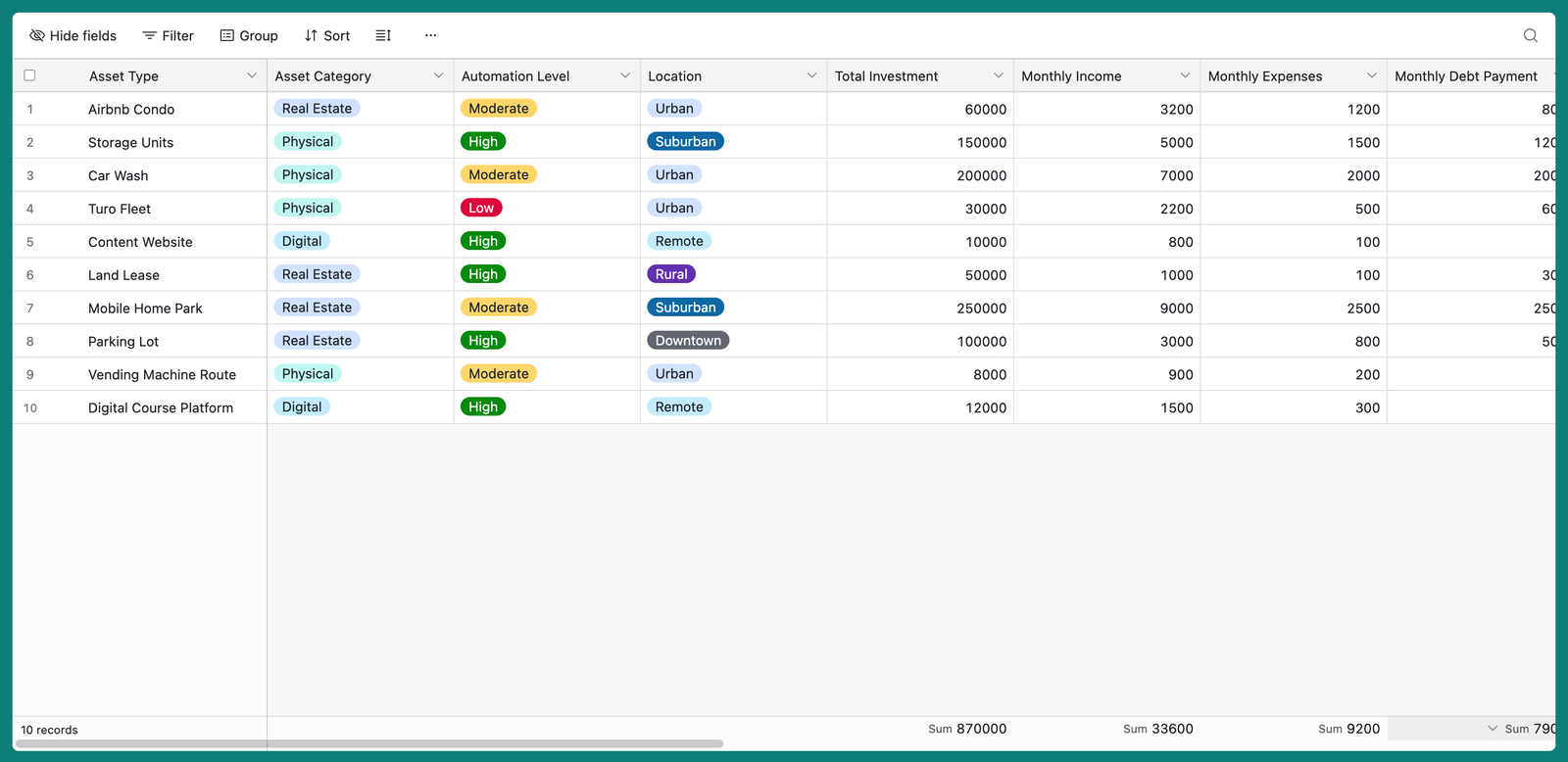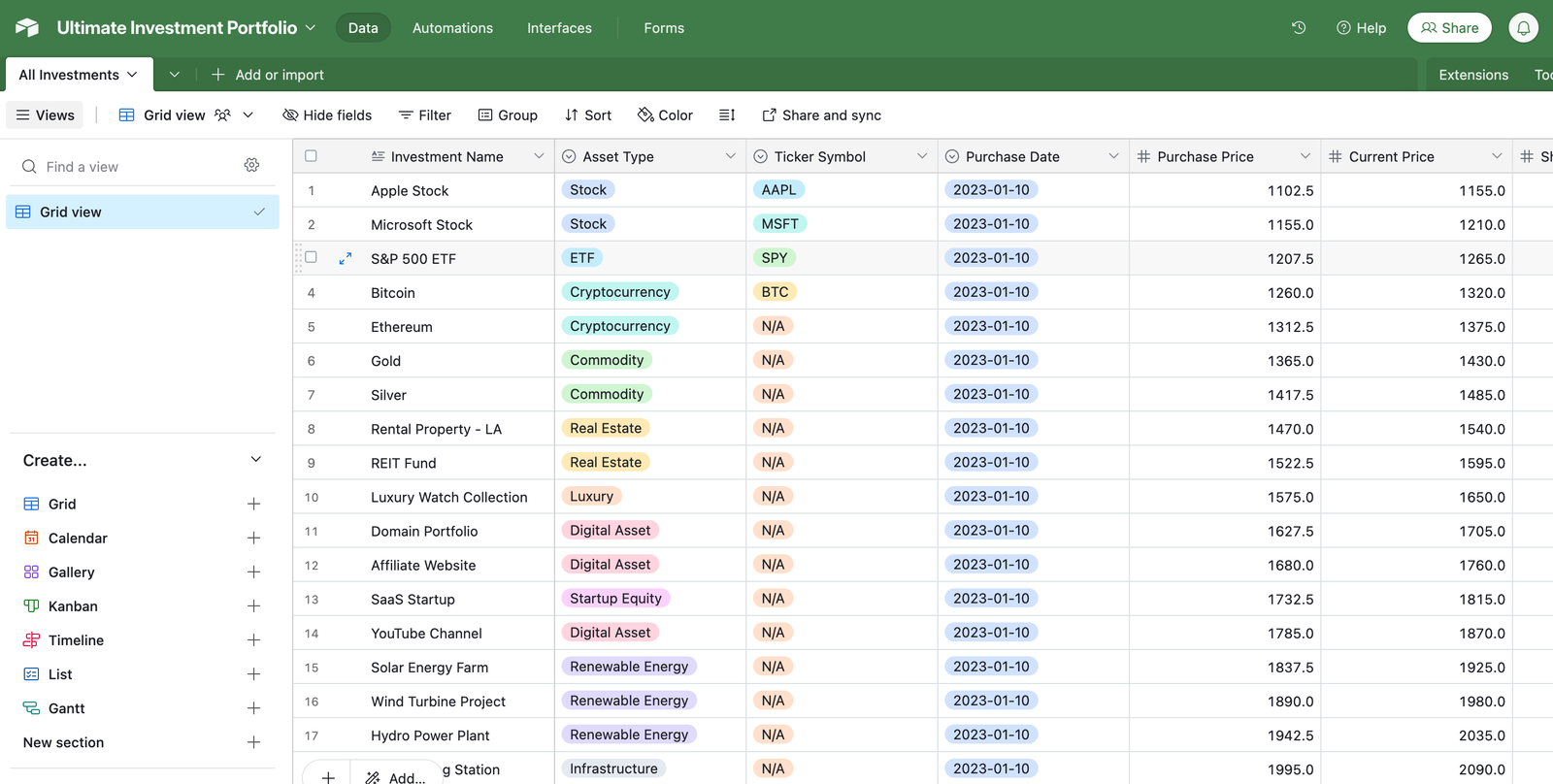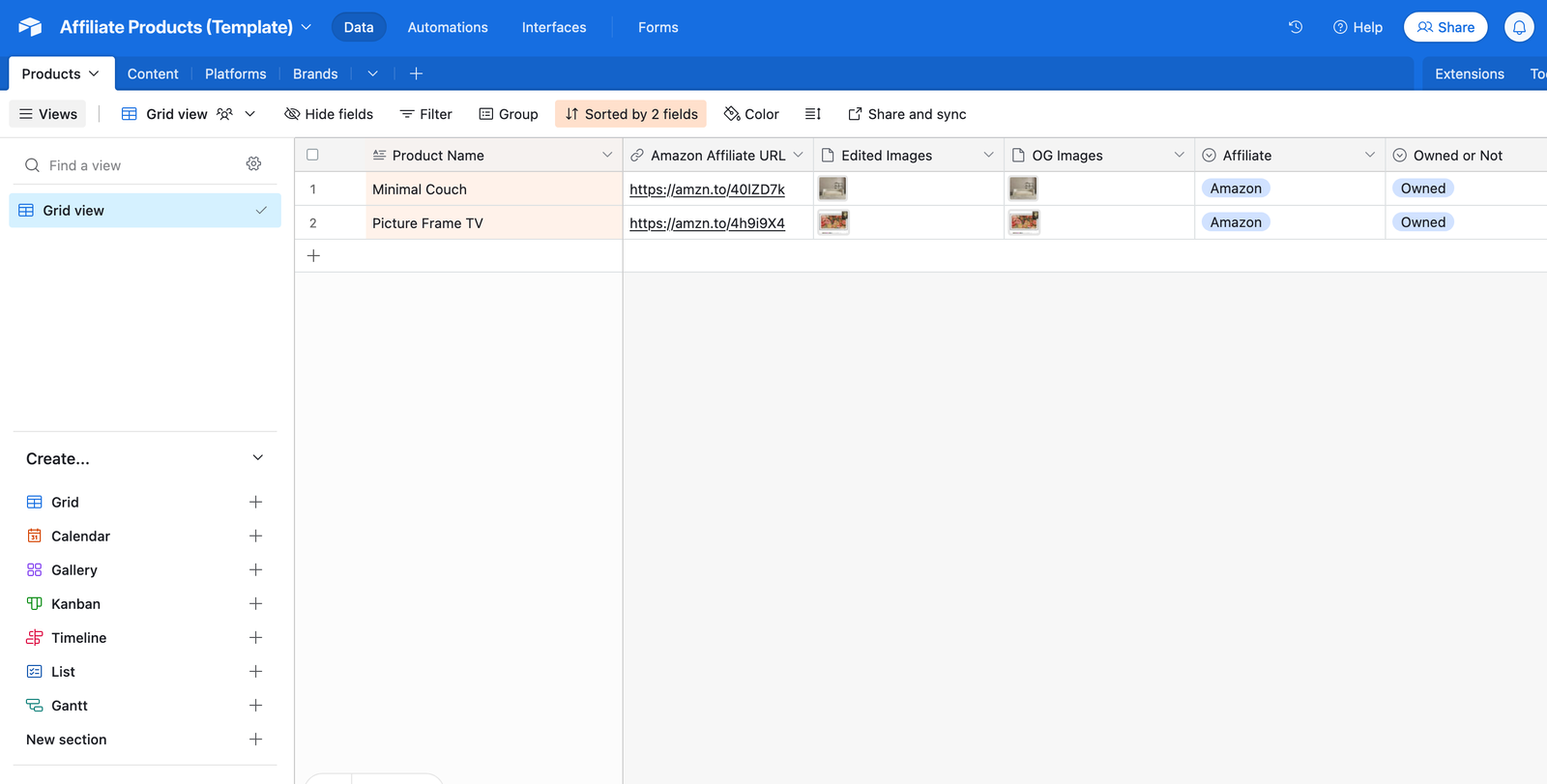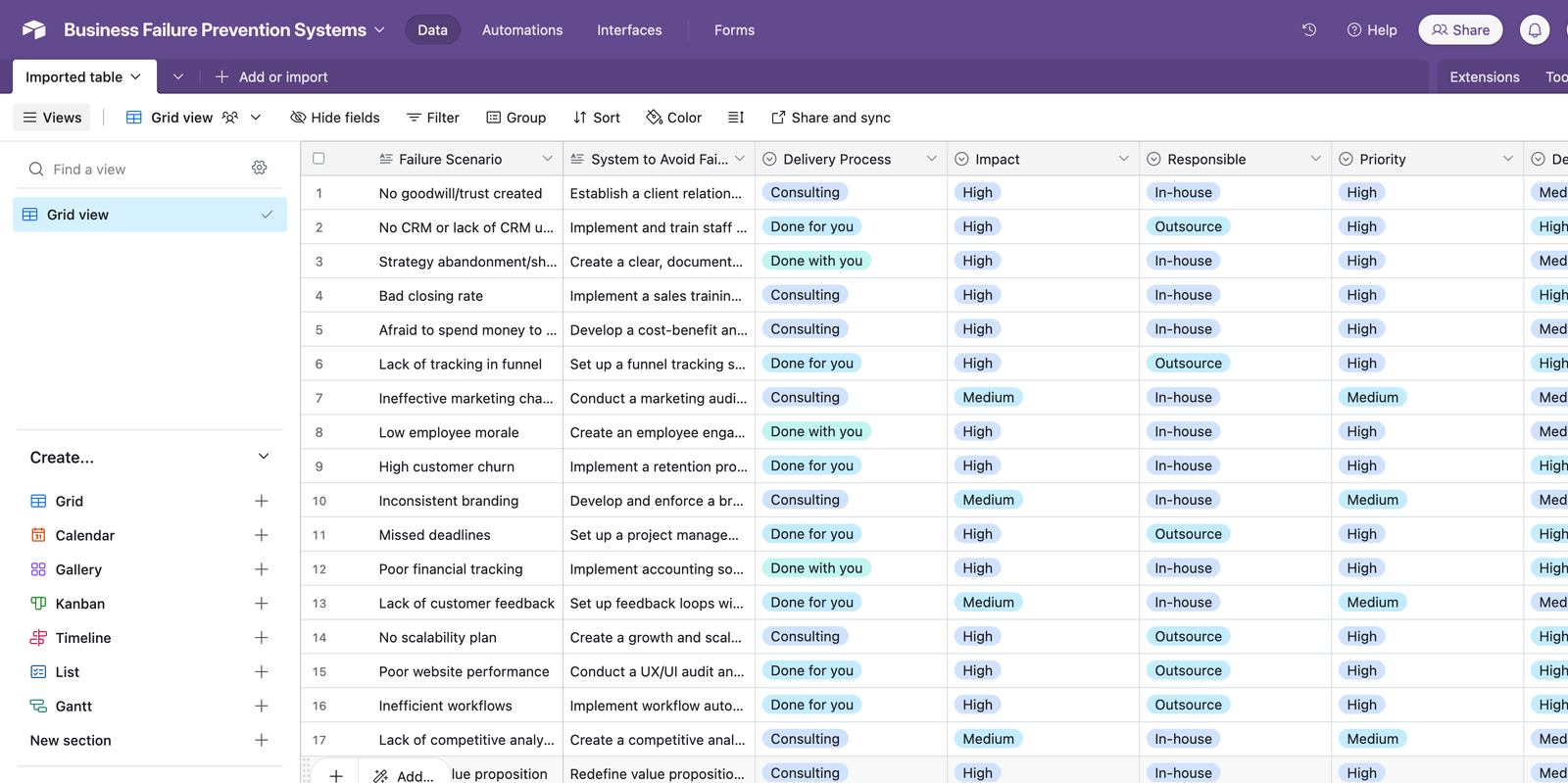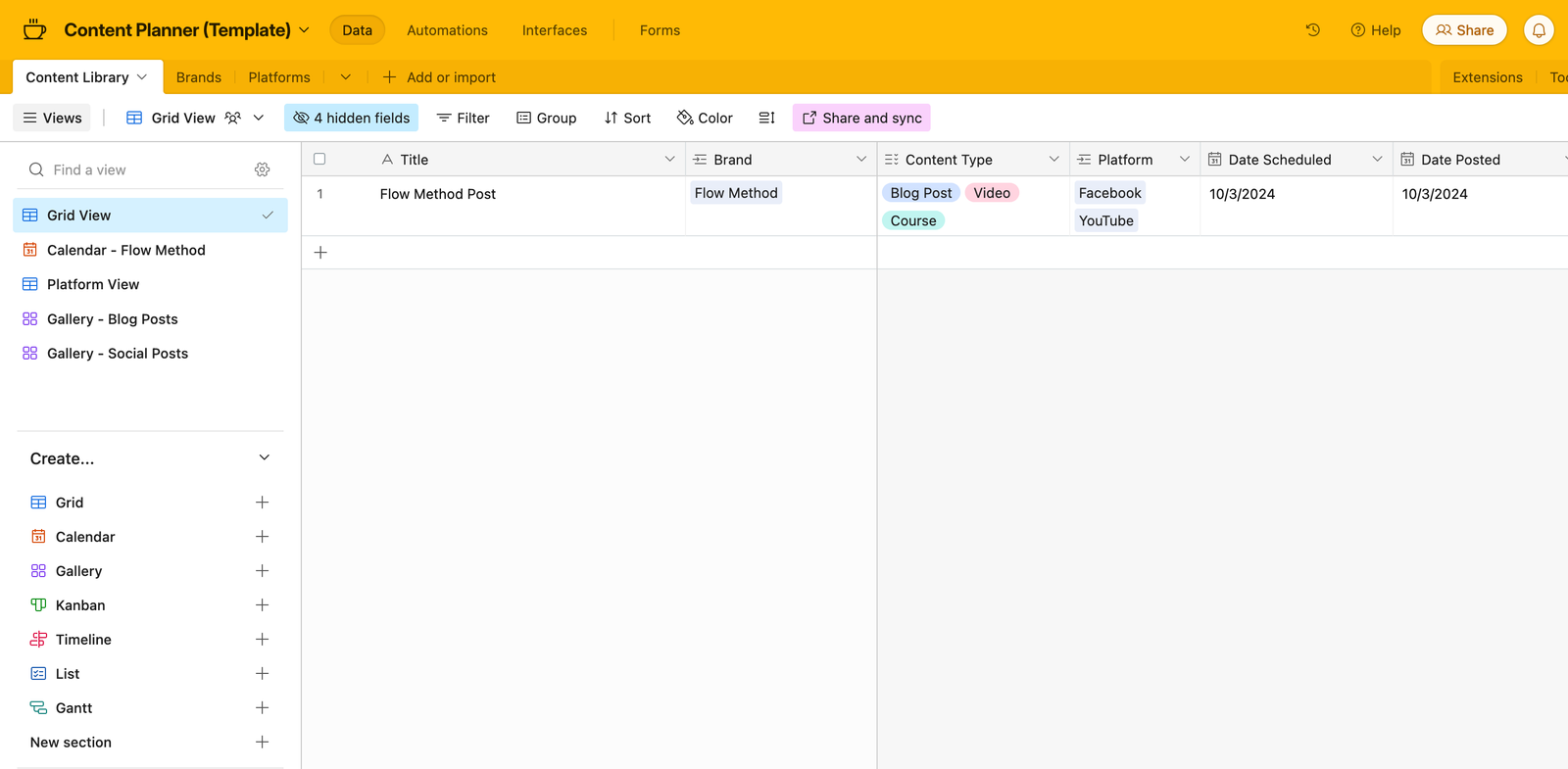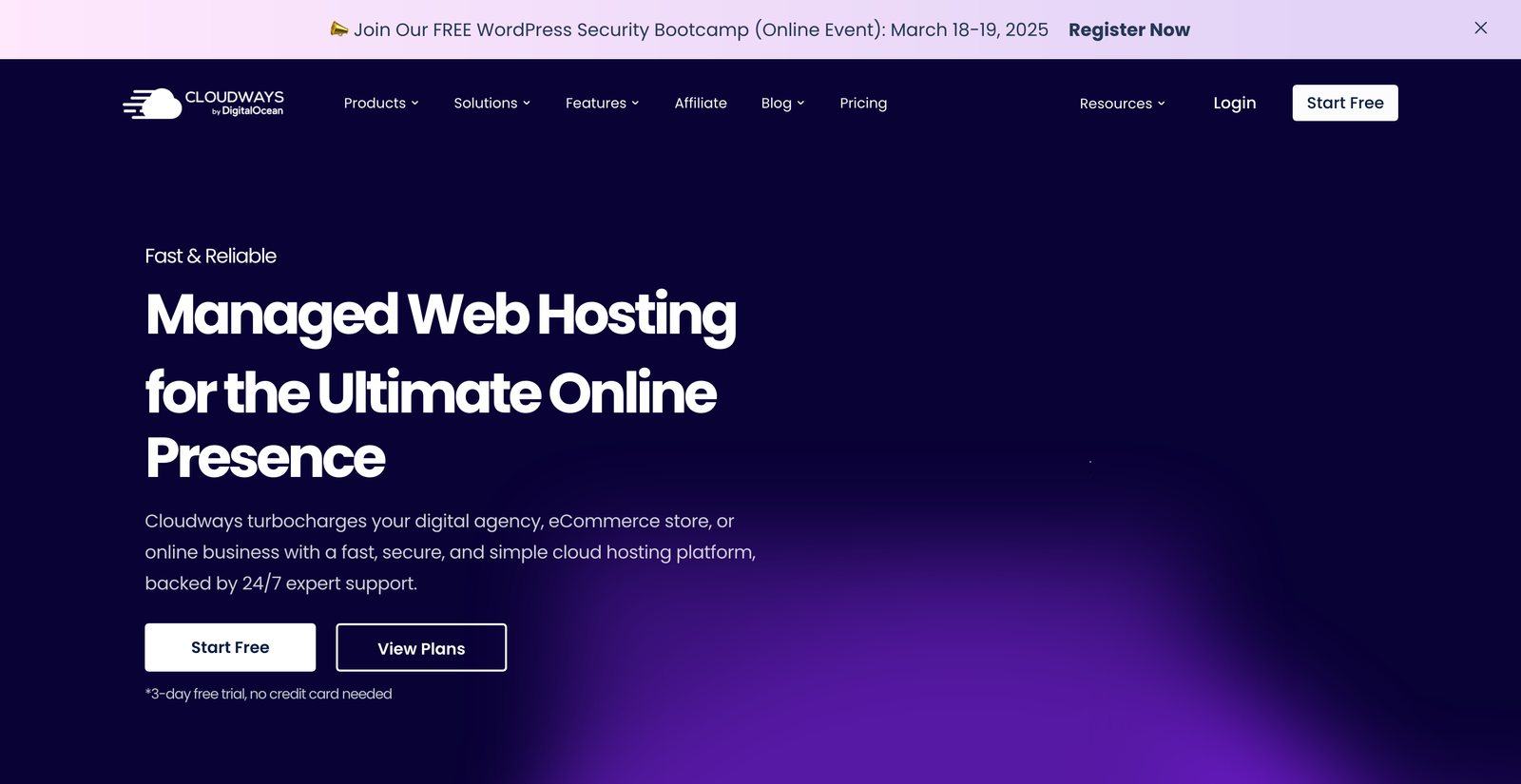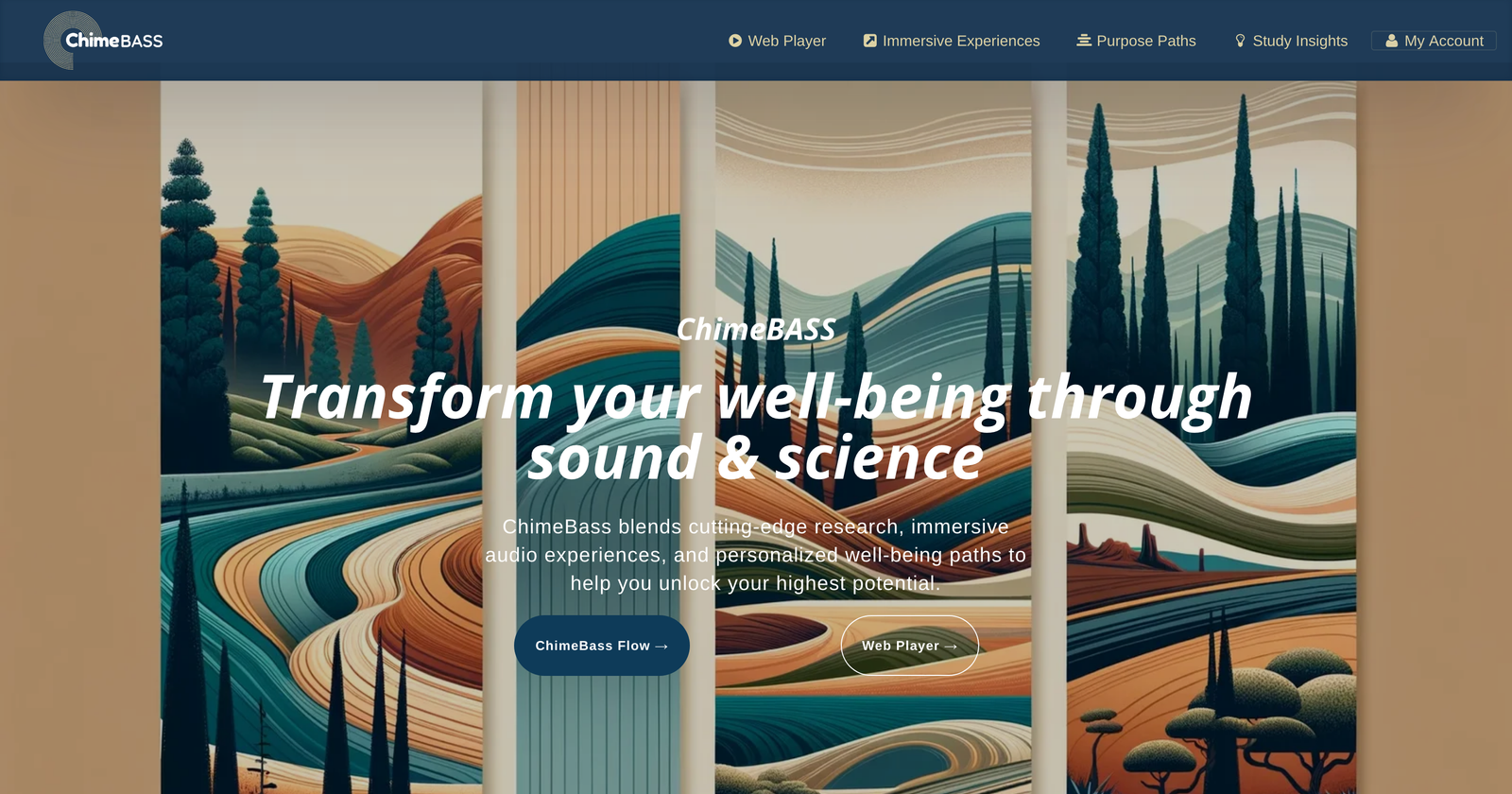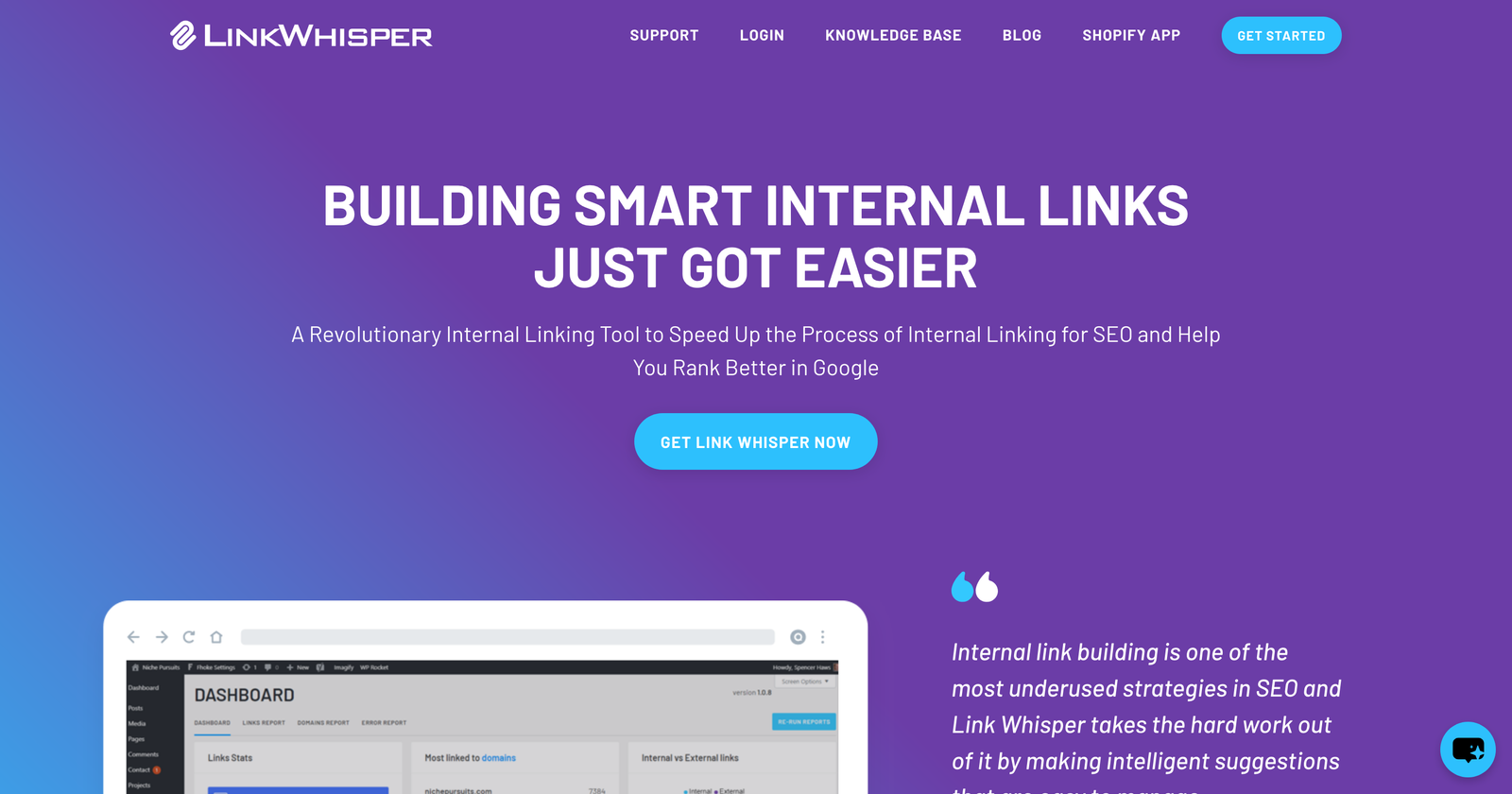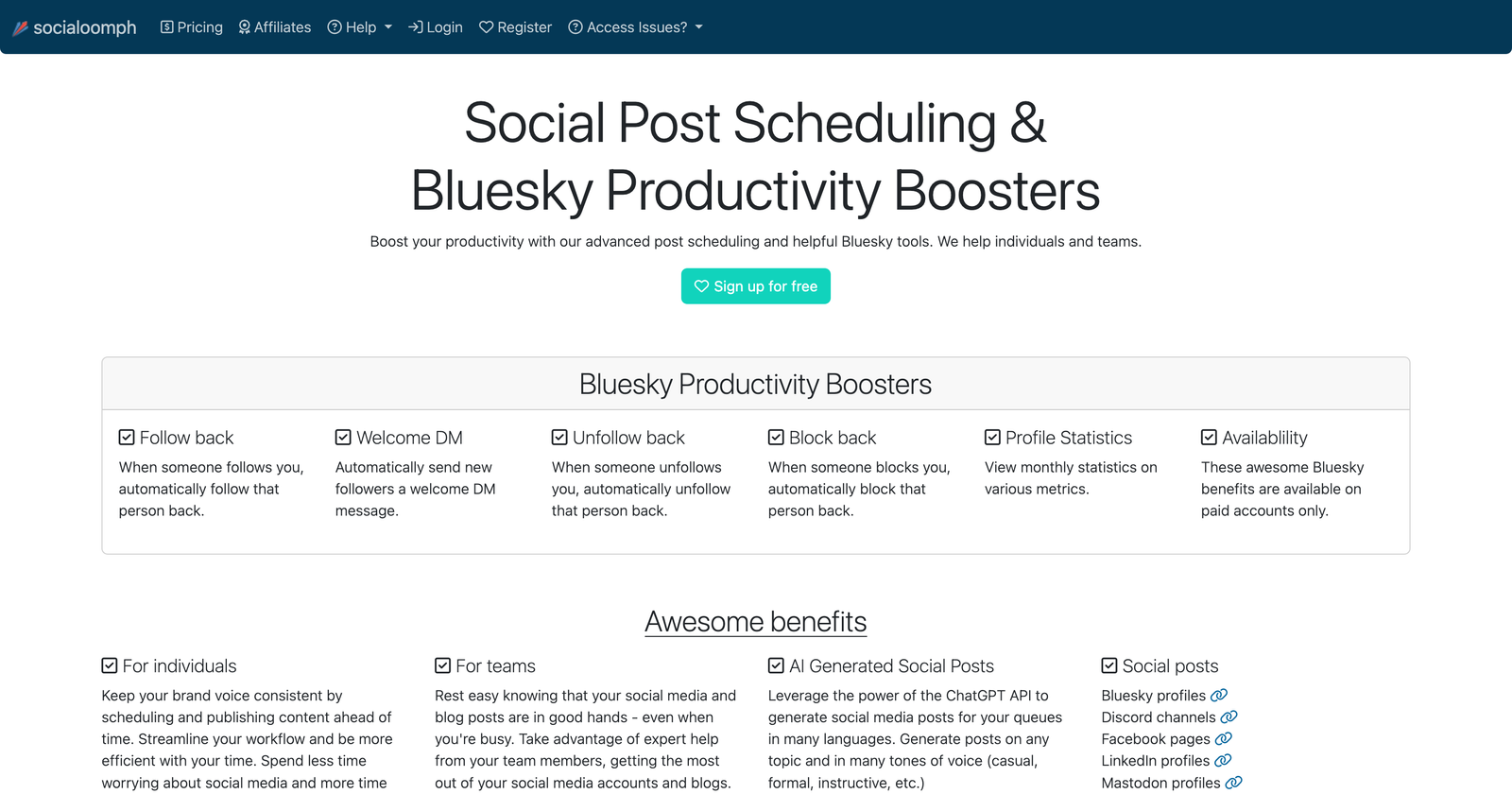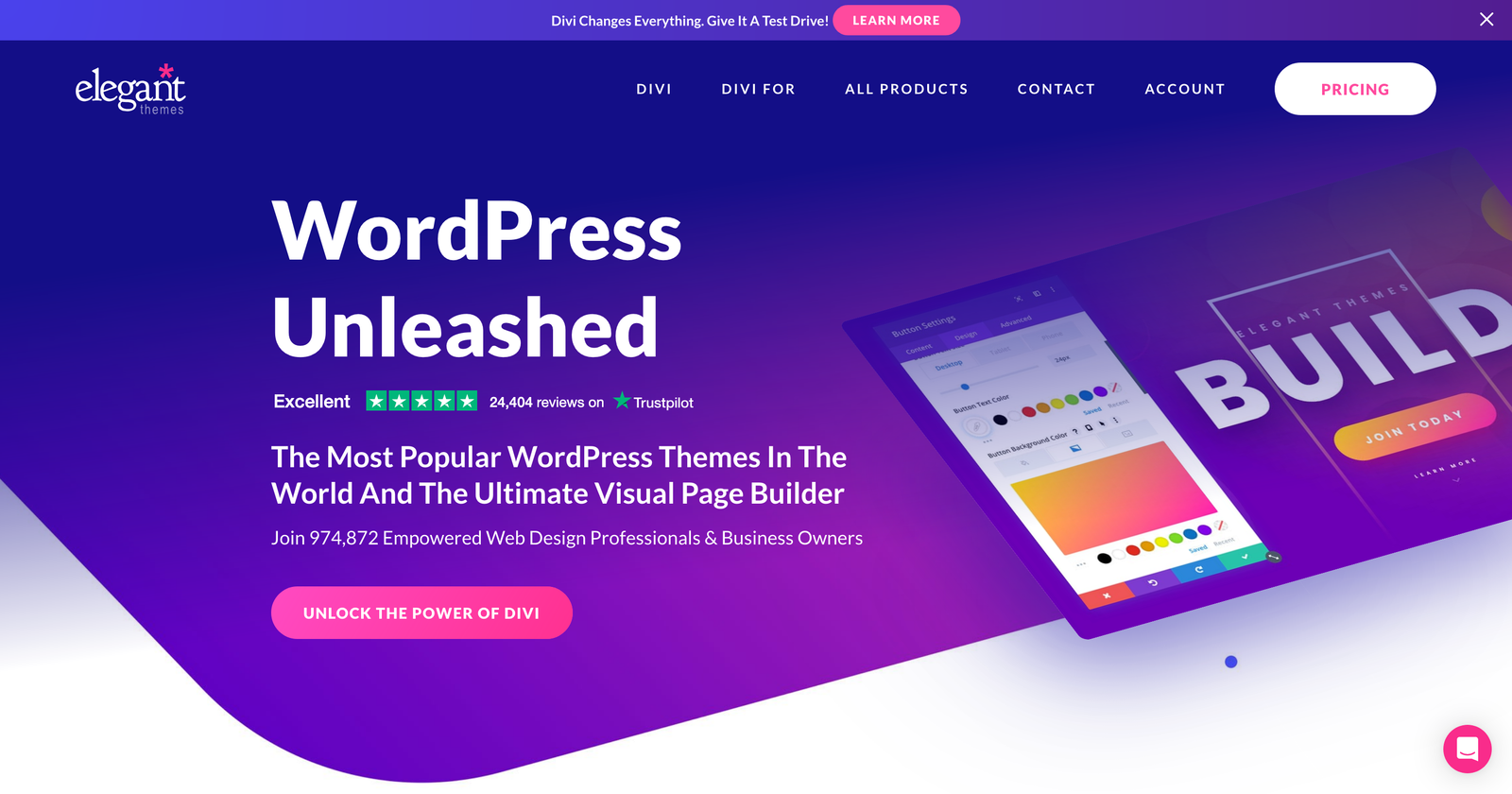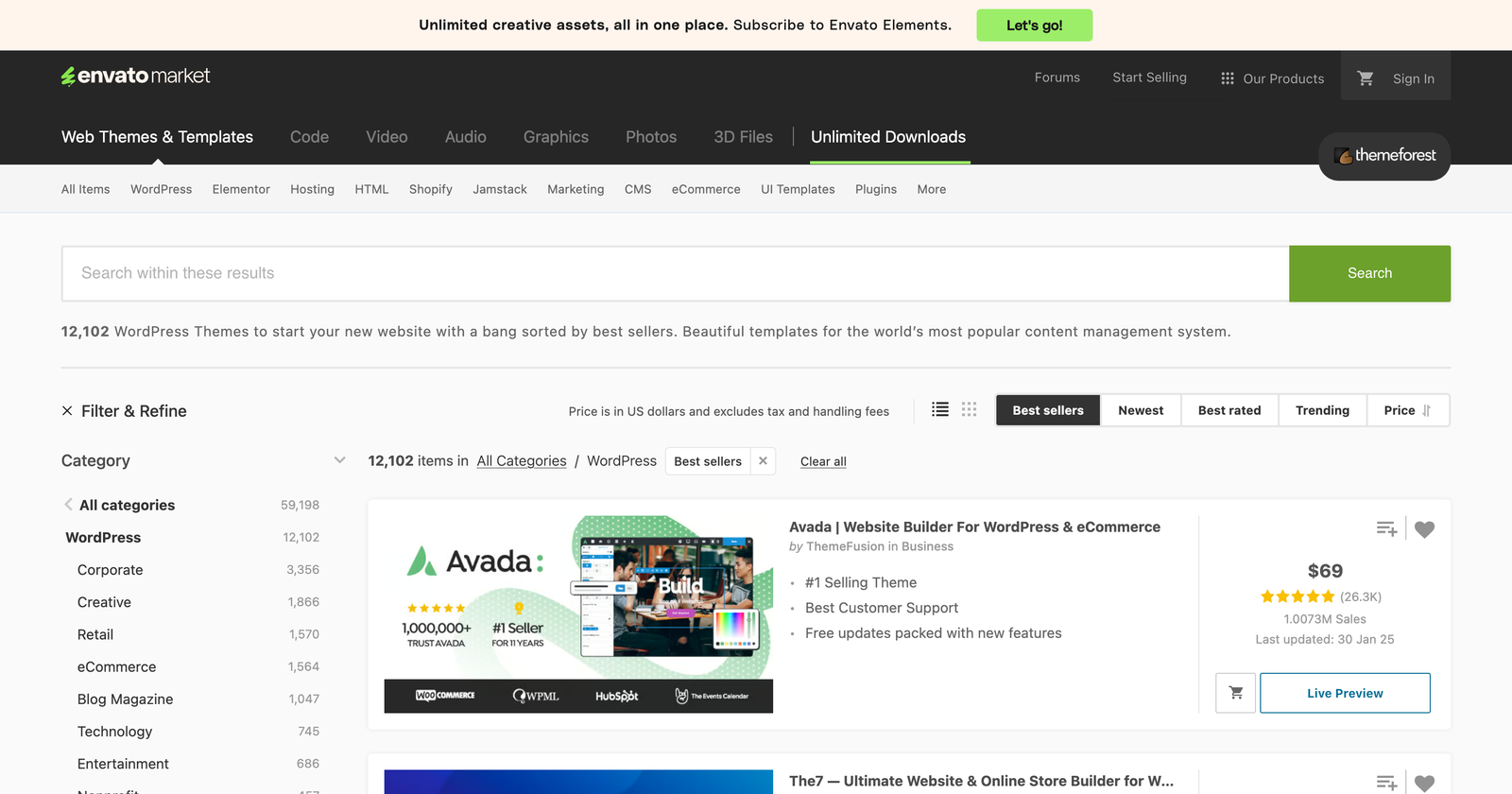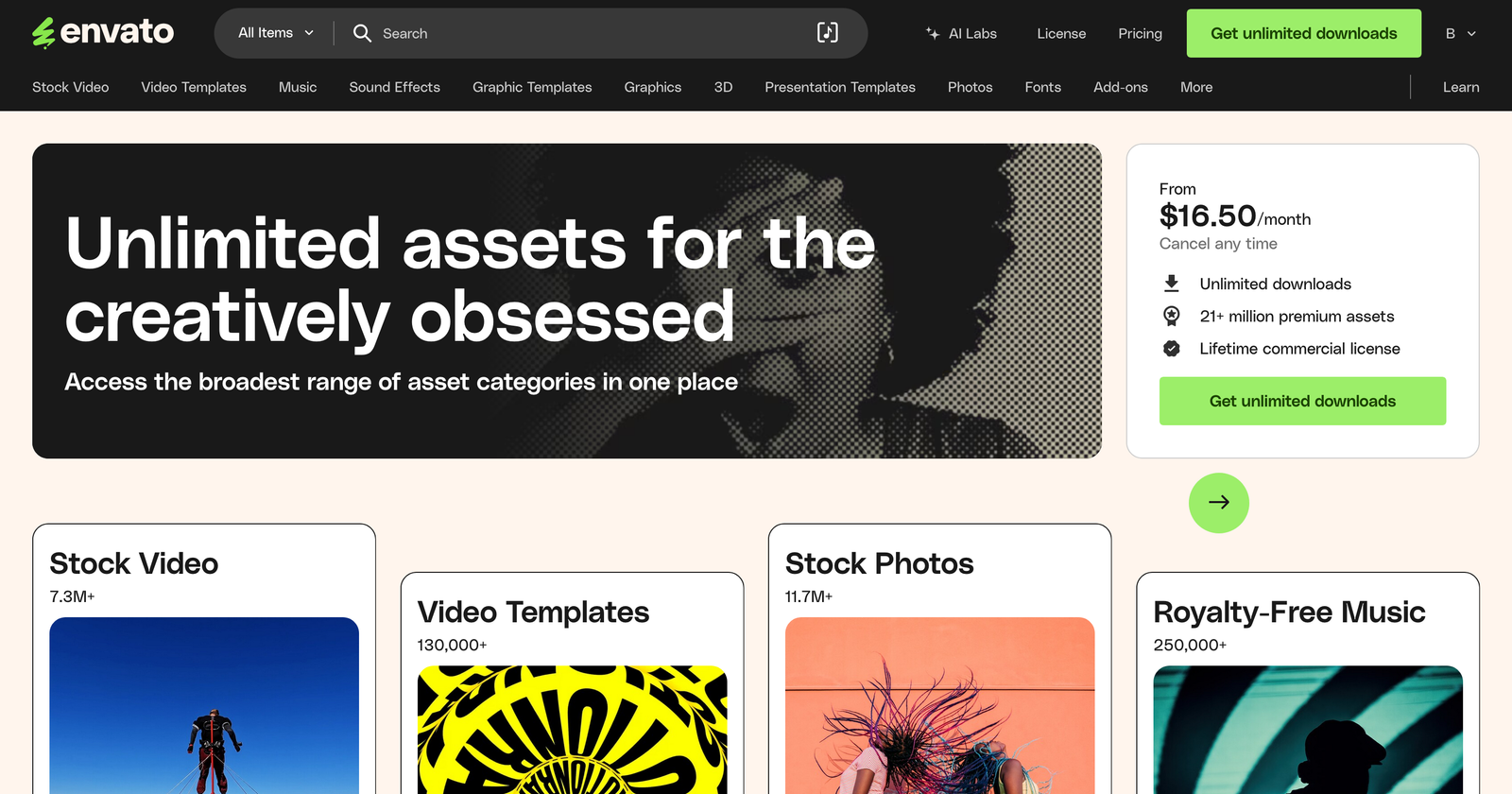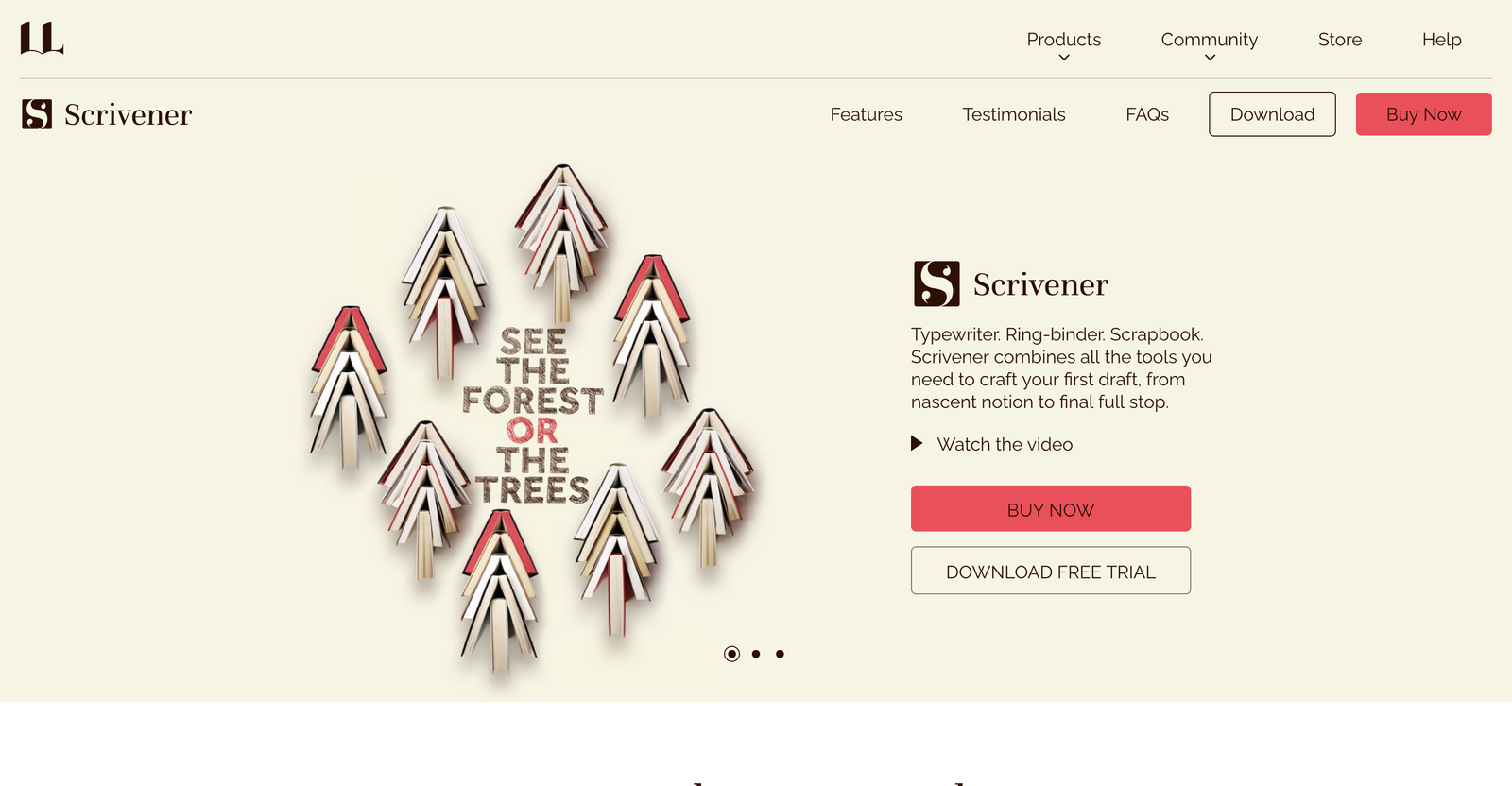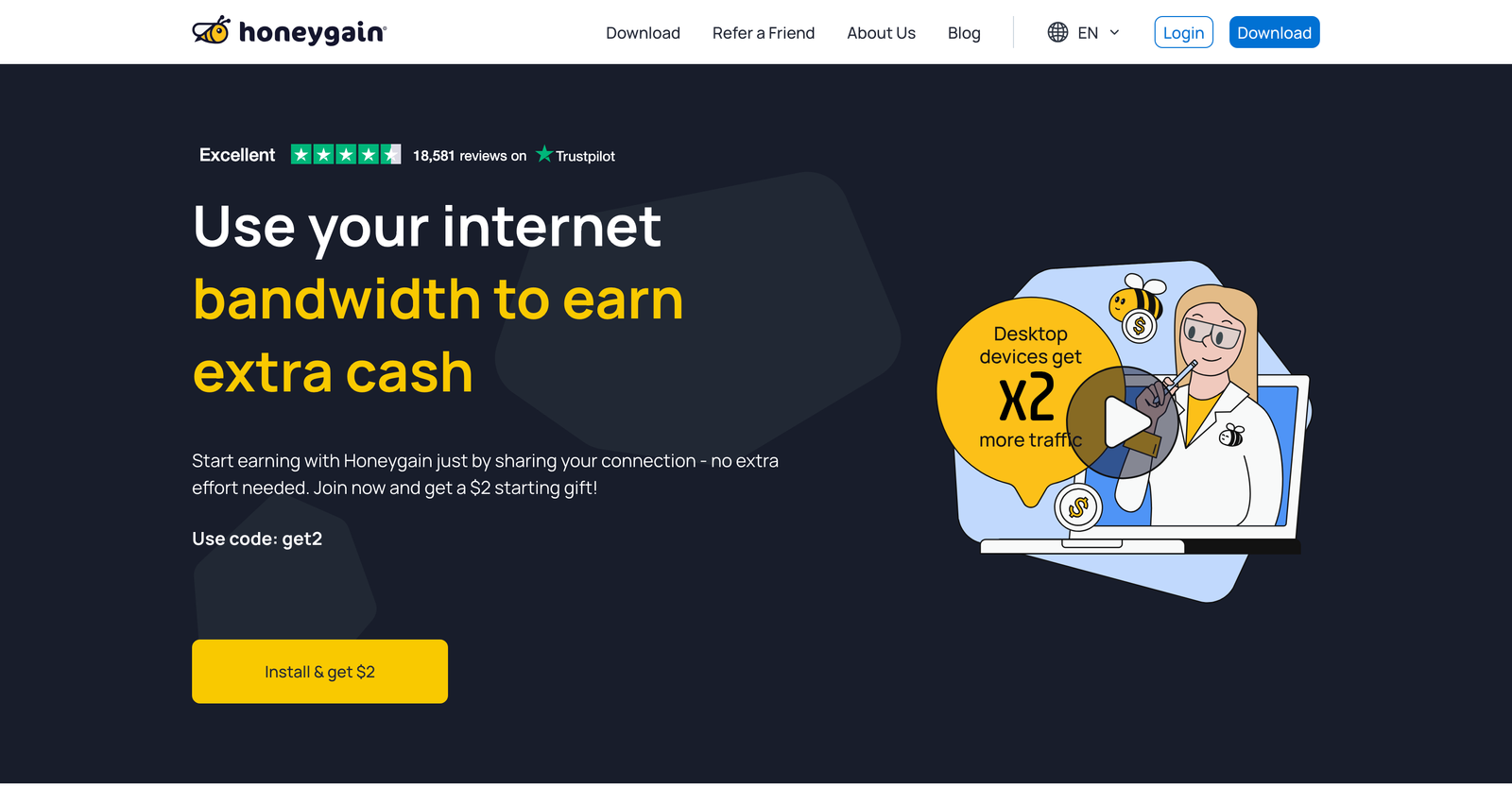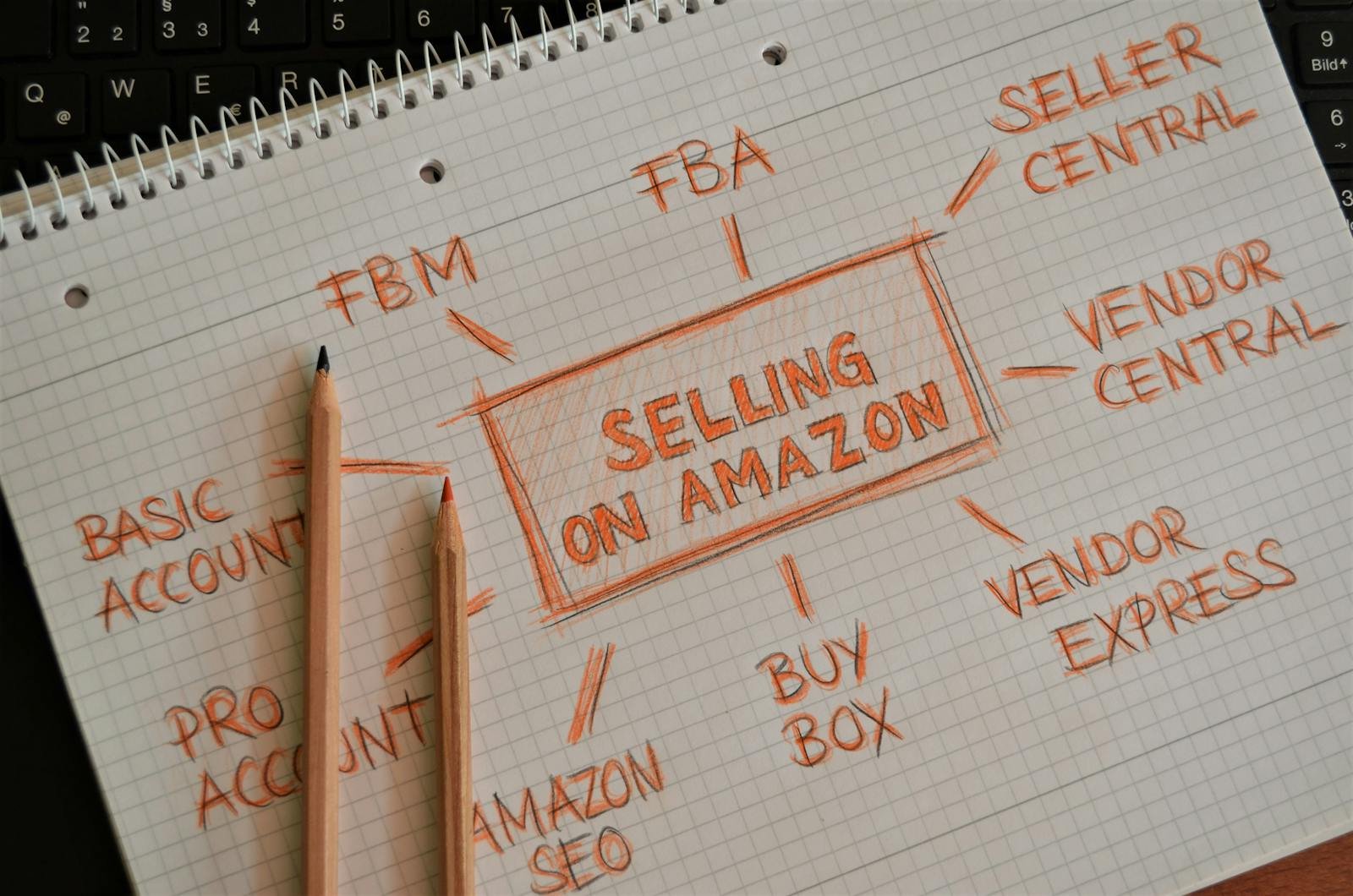Photography Business Insights
Capture Moments.
Create Value.
Start a profitable photography business offering event, portrait, commercial, or stock photography services with high flexibility and creative freedom.
Photography Business Insights
Capture Moments.
Create Value.
Start a profitable photography business offering event, portrait, commercial, or stock photography services with high flexibility and creative freedom.
Photography Business Insights
🏆 Overall Business Viability Score
💰 Profitability Score
🚀 Scalability Score
⏳ Time to Profitability Score
💸 Startup Cost Score
🛠️ Operational Complexity Score
📢 Marketing & Customer Acquisition Score
🤖 Automation & Passive Income Score
📈 Market Demand Score
⚠️ Competition Level Score
🌱 Sustainability & Longevity Score
📊 Revenue Stability Score
🏗️ Barrier to Entry Score
🎯 Target Market Size Score
🔧 Skill & Experience Requirement Score
📍 Location Flexibility Score
💼 Legal & Compliance Complexity Score
🔥 Economic Resilience Score
🔄 Recession Proof Score
🏁 Exit Strategy Score
Business Idea Overview:
A photography business can take many forms — from solo event photographers and portrait sessions to product photography, brand shoots, or stock image libraries. With relatively low startup costs, photographers can generate both active income through shoots and passive income through digital assets like presets, courses, and stock sales. Whether operated locally or remotely, this creative business offers strong brand-building potential, upselling opportunities, and diversification into digital products, memberships, or media packages.
📊 Earning Potential
$50K–$150K/year as a solo freelancer.
$250K+/year with a small team, studio, or niche specialization (e.g., weddings, branding, product photography).
⚠️ Earnings Disclaimer: Actual earnings vary based on niche, strategy, and execution. There is no guarantee of success, and results depend on effort, market conditions, and business management.
🛠️ Best Platforms & Tools
-
Camera: Sony A7 series, Canon R5
-
Software: Adobe Lightroom, Photoshop, Capture One
-
CRM: HoneyBook, Studio Ninja
-
Delivery: Pixieset, SmugMug
Disclaimer: This page may contain affiliate links. If you click through and make a purchase, we may earn a small commission at no additional cost to you. We only recommend tools, platforms, and products that we believe will add real value to your business or creative journey.
Get the Personal Brand Landing Page Template on Flow & Design
⚠️ Biggest Challenge
Client acquisition and inconsistent income, especially in the early stages.
💸 Startup Costs & Investment
$2,000–$8,000 for a camera body, lenses, lighting, editing software, and marketing website.
📢 Customer Acquisition Strategy
-
Instagram and Pinterest for portfolio-based marketing
-
Google My Business for local SEO
-
Vendor referrals (wedding planners, event venues)
-
Paid ads or bundles with influencers, stylists, or businesses
📈 Ideal Business Model
A mix of high-ticket one-time projects (e.g., weddings, branding) and passive income streams (e.g., presets, stock libraries, photo courses).
⏳ Time to Profitability
2–6 months depending on niche, local demand, and initial investment.
🚀 Key to Scaling
Outsource editing, hire second shooters, and create digital products or content licensing libraries.
🤖 Automation & Passive Income Potential
-
CRM automations for invoicing, scheduling, and client comms
-
Passive income through preset packs, ebooks, online photography courses, and stock photo sales
-
Email funnels for lead nurturing
View Automation Tools
🏁 Exit Strategy
Build a personal brand with valuable IP (courses, assets) → Sell digital product library or transition into an agency/studio brand with systems and team.
🌱 Sustainability & Longevity
Long-term creative business with adaptability — especially when paired with digital products, retainer clients, or brand work.
🔄 Market Trends & Demand
-
Continued growth in content-driven branding
-
AI tools for editing/organization
-
Increased demand for niche event or product photography (e.g., real estate, ecommerce)
🆚 Competition Level
High — but highly differentiable through niche positioning, storytelling, editing style, and brand experience.
Sign up for SEO Flow and start your keyword research today. SEOFlow.app
📍 Location Flexibility
Both local and remote options — location shoots, on-site work, and destination packages + remote editing and digital sales.
Visit NomadWave’s Digital Nomad Community
🎯 Ideal Target Audience
-
Entrepreneurs and creators
-
Couples and families
-
Local businesses and brands
-
Content creators/influencers
🏗️ Operational Complexity
Medium — shoots are time-bound and labor-intensive, but editing, delivery, and admin can be systemized.
🔧 Required Skills & Experience
Some technical skill required, but can be self-taught with strong resources and dedication.
💼 Legal & Compliance Considerations
-
Business license
-
Photography contracts and model releases
-
Copyright protection
-
Insurance for gear and liability
📊 Best Monetization Strategies
-
Event and brand photography packages
-
Stock image sales
-
Digital products (presets, courses, guides)
-
Retainer content creation
-
Affiliate gear lists or course bundles
🔥 Recession & Economic Resilience
Moderately recession-resistant if diversified — weddings and content creation hold strong, but luxury segments may slow. Retainers and digital assets add resilience.
💰 Earning Potential
The earning potential of a photography business can range widely based on niche, location, skill level, and diversification strategy.
At the entry level, part-time photographers can earn $500 to $2,000 per month by booking local shoots, portraits, or small events. As experience, reputation, and pricing increase, full-time professionals commonly generate $50,000 to $100,000+ per year through a mix of bookings, retainer clients, and print or digital add-ons.
High-performing photographers who specialize in premium niches like wedding photography, branding sessions, commercial shoots, or real estate packages can earn $150,000 to $300,000+ per year, especially when upselling services like editing, albums, social media bundles, or video add-ons.
Even more potential opens up when combining active services with passive income streams — such as selling photo presets, offering online courses, licensing stock photography, or running paid communities. These additional revenue streams can bring in $500 to $5,000/month or more on autopilot.
📈 Pro Tip: Photographers who systemize their client onboarding, editing workflow, and marketing processes tend to reach profitability faster and have more time to scale.
⚠️ Earnings Disclaimer: Actual earnings vary based on niche, strategy, and execution. There is no guarantee of success, and results depend on effort, market conditions, and business management.
📈 Ideal Business Model
The most successful photography businesses combine high-ticket services, recurring revenue opportunities, and digital income streams to maximize both earnings and freedom.
🧩 Core Model:
High-Ticket, Project-Based Services
This includes weddings, brand photography, commercial shoots, real estate photography, and event coverage. These offer large payouts per project (often $500–$5,000+) and can be scheduled around your availability.
Ideal for: Building authority, boosting cash flow, and quickly gaining client testimonials.
🔁 Add-On Model:
Recurring or Retainer Clients
Photographers can create monthly packages for:
-
Local businesses that need ongoing content
-
Creators or influencers with regular content needs
-
Real estate agents needing listings photographed weekly
Adds predictable, recurring income and long-term client relationships.
📦 Scalable Model:
Digital Product Ecosystem
This includes selling:
-
Lightroom preset packs
-
Photography workshops or courses
-
Stock photography on platforms like Shutterstock or Adobe Stock
-
Digital downloads or templates (contracts, shot lists, etc.)
These assets can generate passive income and build a global audience without trading time for money.
💡 Best Business Model Combo:
One-Time High-Ticket Services + Recurring Clients + Scalable Digital Products
This hybrid approach helps photographers earn actively, build stability, and eventually scale with automation.
🤖 Automation & Passive Income Potential
While photography is traditionally a service-based, time-for-money business, modern tools and creative strategies unlock strong automation and passive income opportunities.
⚙️ What Can Be Automated?
With the right systems in place, much of the admin and client workflow can be automated, freeing you up to focus on creative work:
-
Client Booking & Scheduling → Use tools like Calendly, HoneyBook, or Studio Ninja
-
Contracts & Invoicing → Automate with e-signature + invoice software
-
Email Sequences → Set up onboarding, reminders, and follow-ups automatically
-
Editing Workflow → Use batch editing presets and AI-assisted tools like Imagen AI
🔁 This automation reduces your operational workload, helps eliminate bottlenecks, and improves client experience.
💸 How to Generate Passive Income as a Photographer
Photography businesses can scale beyond shoots by creating digital assets that sell themselves:
-
Presets & Editing Packs – Sell Lightroom presets to other photographers and creators
-
Online Courses & Workshops – Teach niche skills (e.g., product photography, lighting, editing)
-
Stock Photography Libraries – License images on platforms like Shutterstock, Pexels, or Adobe Stock
-
Digital Templates – Contracts, shot lists, mood board kits, client guides
-
Affiliate Marketing – Recommend your gear and earn recurring commissions
-
Prints & Wall Art – Sell your best work on platforms like SmugMug, Pixieset, or Etsy
📦 These revenue streams can run 24/7, offering income without ongoing labor.
🚀 Passive Potential Score: 71/100
The more your photography brand leans into systems, licensing, and digital products, the more freedom and revenue you can unlock — even while you sleep.
Get JotPro, the intuitive AI writing tool with over 50 templates, and countless features like Speech-to-Text and Text-to-Speech. Sign Up Free
📢 Customer Acquisition & Marketing Strategies
Attracting and retaining photography clients requires a smart blend of visual branding, local presence, and digital marketing. Since photography is a trust-based, portfolio-driven business, your marketing should highlight both style and professionalism — and create a sense of familiarity before someone even contacts you.
📸 1. Build a Strong Visual Brand
Your website, Instagram, and business cards should clearly reflect your photography niche and style (e.g., clean & minimalist for brand work, romantic & warm for weddings). Consistency is key.
✅ Showcase your best work, tell your story, and make it easy to book.
🌐 2. Local SEO & Google My Business
For event, portrait, or real estate photography, local search optimization is essential. Set up your Google Business Profile, get client reviews, and use geo-keywords like “Los Angeles wedding photographer” or “Brooklyn brand photographer.”
📍 Appearing in local map packs can drive 20–40% of new inquiries.
📱 3. Social Media Marketing
Use Instagram, Pinterest, and TikTok to:
-
Showcase your portfolio
-
Share behind-the-scenes footage
-
Highlight testimonials and case studies
-
Run reels and carousel ads with your best shots
Bonus: Tag your clients and locations for extended reach.
🤝 4. Partner with Related Businesses
Build a referral network with:
-
Wedding planners, venues, and florists
-
Content creators and social media managers
-
Realtors, agencies, or ecommerce brands
🤝 These B2B connections can bring recurring work and long-term relationships.
💌 5. Email Marketing + Lead Magnets
Offer a free guide, checklist, or shoot planner (e.g., “What to Wear for a Branding Session”) in exchange for emails. Use an automated welcome sequence to build trust and pitch your services or packages.
📩 Helps convert cold leads into warm prospects.
📈 6. Paid Ads + Portfolio Sites
-
Run retargeting ads to past site visitors
-
Use Facebook and Google Ads to promote seasonal offers or mini-sessions
-
List on niche platforms like The Knot, Thumbtack, or Upwork
💡 Retention Strategy:
Offer loyalty perks, seasonal mini-shoots, print packages, or referral bonuses. Keep a content calendar for client follow-ups and re-engagements.
🎯 Summary:
A great marketing strategy for photographers blends SEO, content, partnerships, and emotion. The more consistent your message and visuals, the more trust you build — which leads to bookings, referrals, and long-term clients.
📈 Conversion Tactics
Turning clicks into clients starts with clarity, trust, and irresistible offers.
Once you’ve attracted potential clients through social media, SEO, or referrals, the next step is to convert interest into action. This is where strategic, high-converting touchpoints come into play.
🎯 1. Clear, Compelling Packages
Instead of listing services a la carte, create easy-to-understand, value-packed packages (e.g., “Brand Essentials,” “The Wedding Story,” “Mini Sessions”). Use names that resonate emotionally and clearly outline what’s included.
✅ Highlight deliverables, shoot duration, editing time, turnaround, and bonus perks.
📅 2. Online Booking System
Reduce friction by offering calendar-based scheduling right on your site using tools like Calendly, HoneyBook, or Dubsado. Clients can view availability, select their session type, and pay a deposit in one go.
⚡ Instant bookings = fewer lost leads and a smoother client experience.
💬 3. Trust-Building Testimonials
Feature short, high-impact client quotes across your homepage, service pages, and social posts — especially those that highlight the client experience, ease of working with you, and emotional satisfaction.
Bonus: Add before/after visuals or screenshots of reviews from Google or Instagram DMs.
🛍️ 4. Limited-Time Offers & Bonuses
Use urgency and exclusivity to drive action:
-
“Only 2 wedding spots left this season”
-
“Book this month and get 10 free edited prints”
-
“Free content strategy call with every branding shoot”
🧠 Tap into FOMO and incentivize commitment.
📸 5. Lead Magnet → Funnel Conversion
Offer a free download like:
-
“10 Things to Know Before Your Brand Shoot”
-
“The Ultimate Wedding Photography Timeline”
-
“What to Wear for Professional Headshots”
Then use an automated email funnel to:
-
Build trust
-
Showcase your style
-
Include a call-to-action with booking links or testimonials
📊 6. Photo Gallery or Video Walkthrough
Embed a dynamic portfolio or client walkthrough video. This makes the experience feel personal, professional, and exciting. Add voice-over or captions explaining your process.
🎥 This builds confidence in what it’s like to work with you.
📦 7. Easy Upsells
Offer add-ons post-booking or at checkout:
-
Extra edits
-
Rush delivery
-
Prints, albums, or branded social cutdowns
💸 Increases revenue per client without more marketing effort.
🧠 Final Tip:
The more you reduce friction and increase emotional clarity, the more likely someone is to click “Book Now.” Make your site feel like a concierge, not a menu.
💰 Most Profitable Niches in Photography
Not all photography niches are created equal. Some offer high-ticket opportunities, consistent demand, or scalable product offerings — making them ideal for photographers looking to grow fast and sustainably.
Below are the top niches known for profitability, longevity, and upsell potential:
👰♀️ 1. Wedding Photography
Why it’s profitable:
-
High emotional value = higher pricing power
-
Clients often spend $2,000–$10,000+
-
Built-in upsells: albums, prints, engagement shoots, video add-ons
-
Year-round demand in many locations
📸 Success Tip: Create packages and referral deals with venues or planners.
💼 2. Brand & Personal Branding Photography
Why it’s profitable:
-
Businesses and creators need constant content
-
Great for retainer models ($500–$2,000/month)
-
Can be paired with strategy or social media consulting
-
Higher demand with rise in solopreneurs & influencers
🔁 Success Tip: Offer monthly or quarterly content packages.
🏡 3. Real Estate & Architectural Photography
Why it’s profitable:
-
Quick turnaround, low editing time
-
Realtors need regular shoots = repeat business
-
Drone + video add-ons boost average project size
-
Can expand into 3D tours, staging packages
🛩️ Success Tip: Invest in drone certification for premium upsells.
📦 4. Product Photography (eCommerce)
Why it’s profitable:
-
Essential for online stores, Amazon, Shopify brands
-
High-volume work with repeat clients
-
Remote-friendly (products shipped to your studio)
-
Opportunities to niche down (skincare, fashion, tech, etc.)
🛒 Success Tip: Create tiered packages by number of products and formats (white background, lifestyle, reels).
🧑🏫 5. Photography Education & Digital Products
Why it’s profitable:
-
Zero fulfillment cost once created
-
Sell courses, presets, eBooks, workshops
-
Unlimited scalability and passive income
-
Perfect for photographers with experience and an audience
💡 Success Tip: Bundle physical services with digital upsells (e.g., free preset pack after a shoot).
🎓 6. Senior Portraits & Graduation Photography
Why it’s profitable:
-
High client volume in school-heavy regions
-
Emotional milestone = strong print and album sales
-
Often bundled with family or prom sessions
-
High referral potential among classmates
📅 Success Tip: Use seasonal promos during key graduation months.
🧠 Honorable Mentions:
-
Maternity & Newborn Photography – Emotion-driven, perfect for prints
-
Event Photography (Corporate & Social) – High-volume days, repeat clients
-
Headshot Photography – Easy to scale and bundle for teams or events
-
Pet Photography – Unique, fun, and emotional (with print upsells)
🧭 Final Advice:
Start broad if you’re new, but niche down fast based on your style, local demand, and what you enjoy most. Profitable niches combine urgency, repeat need, emotional value, and upsell opportunities.
📸 Photography Business vs. Other Business Models
| Feature / Factor | Photography Business | Dropshipping / eCommerce | Freelance Design or Development | Content Creation / Influencer | Digital Product Business |
|---|---|---|---|---|---|
| 💰 Startup Cost | Moderate – $2K–$8K for gear + tools | Low–Moderate – $500–$3K (ads, store setup) | Low – Mostly laptop/software | Low – Camera/phone and consistency | Very Low – Mostly time + tools |
| 🚀 Scalability | Medium – Time-based, scalable with team/digital | High – Scale with ads + automation | Medium – Limited to billable hours | Medium – Grows with audience | High – Unlimited product sales |
| 📸 Creativity & Fulfillment | Very High – Hands-on, expressive | Low – Product/market focus | Medium – Project-based | High – Creative but brand-dependent | High – Course and product creation |
| 🧱 Barrier to Entry | Medium – Requires skill, gear, brand | Low – Easy to launch | Low – Many platforms, but competitive | Low – Anyone can start, but hard to grow | Low – Anyone can make products |
| ⏳ Time to Profit | Medium – 2–6 months with local clients | Medium – 3–6 months with ads | Medium – Fast with inbound leads | Long – Often >6 months to monetize | Varies – Weeks to months depending on audience |
| 📦 Passive Income Potential | Medium – Via presets, courses, stock | Medium – Once automated | Low – Mostly active work | Medium – Sponsorships, affiliate links | High – Full potential for automation |
| 💼 Client Retention / Stability | Medium – Retainers possible (branding, content) | Low – Often one-time sales | High – Project extensions common | Medium – Community-driven, but volatile | Medium – Requires continued audience trust |
| ⚠️ Competition | High – Saturated, especially in weddings/events | Very High – Global saturation | High – Global market | Very High – Follower-based | High – Info product overload |
| 📍 Location Flexibility | Medium – Local shoots + remote editing possible | High – Fully remote | High – Fully remote | High – Fully remote | High – Fully remote |
| 📈 Earning Ceiling | High with brand, team, or digital asset model | Very High – With winning product/ads | Medium – Limited to project volume | Medium – Monetization tied to reach | Very High – Scale is uncapped |
🧠 Summary:
| Model | Best For |
|---|---|
| Photography | Creatives who love visual work, personal branding, and hybrid income |
| eCommerce/Dropshipping | Product marketers who want automation and global scale |
| Freelance Design/Dev | Skilled builders seeking high hourly/project rates |
| Content Creation | Personal brands + entertainers who can grow and monetize communities |
| Digital Products | Educators, creators, and experts looking for scalable passive income |
🔍 Final Verdict:
A Photography Business is ideal for entrepreneurs who want:
-
Creative, hands-on work
-
A portfolio-based brand
-
Hybrid income from services + digital assets
-
Local + digital freedom
It’s not as passive as selling digital products — but it’s deeply fulfilling, visually powerful, and offers plenty of room to grow with the right systems.
🔄 Future Trends & Demand in Photography
The photography industry is evolving fast — blending traditional creativity with digital innovation and AI-powered tools. While the core value of storytelling through visuals remains timeless, the ways photographers attract, serve, and monetize their work are shifting.
Here’s what’s shaping the future of photography — and where demand is headed:
📱 1. High Demand for Brand & Content Photography
As personal brands and small businesses grow their presence online, the demand for authentic, high-quality visual content is booming.
-
Content creators need fresh photos every week
-
E-commerce brands require regular product updates
-
Service businesses want lifestyle & branding shoots
📈 Expect brand photography retainers and content-as-a-service packages to rise.
🤖 2. AI Tools Will Change the Editing Process (Not Replace Photographers)
AI-powered tools like Imagen AI and Luminar are speeding up the post-production workflow, helping photographers edit faster and with more consistency — freeing up time for creativity, strategy, or scaling.
⚡ Speed = higher volume = more profitability.
🎓 3. Digital Education & Preset Sales Will Keep Growing
Photographers with strong brands are increasingly turning into educators, coaches, and digital product sellers — sharing everything from presets and posing guides to full-scale workshops and courses.
💡 The “photo-preneur” era is here — creatives who monetize both their services and their knowledge.
🏢 4. Commercial & Niche B2B Work is Expanding
With more businesses focused on standing out visually, expect growing demand in:
-
Product photography for DTC brands
-
Corporate branding (headshots, lifestyle shoots)
-
Real estate and architectural work
-
Healthcare, fitness, and food photography
📸 These clients often value consistency and will pay for quality + professionalism.
🎥 5. Hybrid Photo & Video Packages Are the New Standard
Clients want full content packages — not just stills. Photographers who add basic video services, reels, or behind-the-scenes clips will have a major edge.
🧠 Tip: Master short-form video (vertical) to stay ahead.
🌎 6. Remote & Mobile Studios Will Thrive
With online booking, virtual consultations, and mobile gear setups, photographers are becoming more nimble and location-independent. Portable lighting, remote editing, and hybrid travel-shoot workflows are becoming the norm.
🔮 Outlook:
Photography demand isn’t shrinking — it’s shifting.
Success will favor those who combine visual artistry with tech fluency, brand positioning, and diverse revenue streams.
The photographers of the future aren’t just image-makers — they’re content partners, visual strategists, and asset creators.
Elevate Your Brand into a Next-Level Experience
Discover immersive web, design, and content solutions that captivate, convert, and leave a lasting impact.
👉 Explore Jetpack Immersive at jetpackimmersive.com
Updates on
Music Production Business
Get notified on new updates with the
Music Production Business ecosystem.
Sponsor
Reviews of Photography Business
https://www.gezesrkog.com/
Dear,
I hope this email finds you well. I’m excited to introduce you to Cargoholidays.com, your gateway to a unique and adventurous way of exploring the world through cargo ship travel. As a leading cargo travel agency, we specialize in creating unforgettable journeys that offer a fresh perspective on travel and adventure.
At CargoHolidays, we understand that traditional travel experiences may not be for everyone, and that’s why we offer an alternative that’s both enriching and fascinating. Our cargo ship travel services open up a world of possibilities for those seeking a truly authentic and immersive travel experience.
I invite you to explore our website at CargoHolidays Website to browse our available routes at cargoholidays.com, destinations, and testimonials from fellow adventurers who have experienced the magic of cargo ship travel with us.
If you’re ready to embark on a one-of-a-kind journey or have any questions about our services, please don’t hesitate to contact us at contact@cargoholidays.com. Our dedicated team is here to assist you in planning your cargo ship adventure, providing insights, and addressing any queries you may have.
Safe travels and warm regards,





